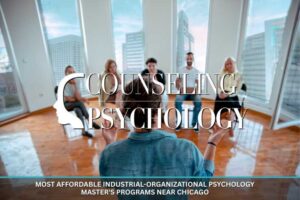What Does a Typical Work Day Look Like For a Licensed Professional Counselor?

Licensed Professional Counselors (LPCs), often referred to as mental health counselors, are trained and licensed professionals who provide valuable mental health support to individuals, couples, families, and groups. Their work is dedicated to helping clients navigate the challenges of life, manage mental health issues, and improve their overall well-being. LPCs work in a variety of settings, including private practices, community mental health centers, schools, and healthcare institutions. In this article, we will explore what a typical workday looks like for a Licensed Professional Counselor following the completion of their education and licensure requirements, the diverse responsibilities they undertake, and the essential role they play in the lives of their clients.
The Role of a Licensed Professional Counselor
Licensed Professional Counselors are mental health professionals who have completed rigorous education and training, including a master’s degree in professional counseling or a related field, followed by supervised clinical experience and successful completion of licensure examinations. Their responsibilities and roles are multifaceted and include:
- Assessment: Conducting comprehensive assessments to understand clients’ emotional and psychological well-being, identifying issues, and formulating treatment plans.
- Counseling and Therapy: Providing individual, group, family, or couples therapy to help clients work through emotional challenges, mental health issues, and life transitions.
- Treatment Planning: Developing individualized treatment plans that outline therapeutic goals and interventions to help clients reach a state of improved mental health.
- Crisis Intervention: Offering immediate support and assistance to clients in crisis, whether they are experiencing suicidal thoughts, self-harm, or other urgent mental health concerns.
- Advocacy: Acting as advocates for clients, helping them access resources, services, and support systems, and navigating the complexities of the mental health system.
- Resource Referral: Connecting clients with necessary resources, such as psychiatrists, support groups, community services, and addiction treatment programs.
- Prevention and Education: Engaging in prevention efforts, including mental health education and awareness programs aimed at promoting healthy behaviors, reducing stigma, and preventing mental health issues.
A Typical Workday for a Licensed Professional Counselor
A typical workday for a Licensed Professional Counselor is dynamic and focused on providing clients with the support and guidance they need to address their mental health concerns. The specific tasks and responsibilities may vary based on the counselor’s specialization, the setting in which they work, and the needs of their clients. Here is what a typical workday may look like for a Licensed Professional Counselor:
Morning Preparation and Review
Licensed Professional Counselors often start their day by reviewing their schedule and appointments. They may prepare their therapy materials, review client files, and coordinate with other professionals, such as psychiatrists or social workers, for collaborative care.
Client Appointments
A significant portion of the counselor’s workday is dedicated to conducting client appointments. These may include individual therapy sessions, group counseling, or family therapy. During these sessions, counselors help clients work through emotional challenges, mental health issues, and life transitions.
Crisis Intervention
Licensed Professional Counselors are often called upon to provide crisis intervention to clients in immediate distress. This may involve managing clients who are experiencing suicidal thoughts, self-harm, or severe emotional crises. Crisis intervention requires a calm and supportive approach to help clients regain stability.
Consultation and Collaboration
Collaboration is a significant part of a Licensed Professional Counselor’s daily routine. They work closely with other professionals, such as psychiatrists, social workers, educators, and community agencies, to coordinate care and ensure that clients receive comprehensive support.
Group Sessions and Workshops
Some Licensed Professional Counselors conduct group therapy sessions, support groups, or psychoeducational workshops. These programs provide clients with the opportunity to connect with others facing similar challenges and gain valuable skills for managing their mental health.
Continuing Education
To stay current in their field, Licensed Professional Counselors engage in continuing education activities. This may include attending conferences, workshops, and seminars focused on the latest developments in mental health research and treatment techniques.
Self-Care and Supervision
Given the emotionally taxing nature of their work, Licensed Professional Counselors prioritize self-care practices to manage the impact of vicarious trauma. They also seek supervision and support from peers to process their experiences and maintain their well-being.
Work Settings for Licensed Professional Counselors
Licensed Professional Counselors work in various settings, each with its unique challenges and opportunities. Here are some common work settings for LPCs:
- Private Practice: Many counselors operate their private practices, offering individual, group, and family therapy sessions to clients seeking mental health support.
- Hospitals and Healthcare Settings: In healthcare institutions, counselors may provide mental health services to patients receiving medical care, particularly in psychiatric departments or addiction treatment programs.
- Community Mental Health Centers: Many counselors work in community mental health centers, offering a wide range of mental health services to individuals and families.
- Schools: School-based counselors work within educational institutions, providing support to students dealing with academic, emotional, and behavioral challenges.
- Nonprofit Organizations: Non-profit organizations often employ counselors to provide counseling services to underserved populations or specific groups, such as veterans or survivors of trauma.



